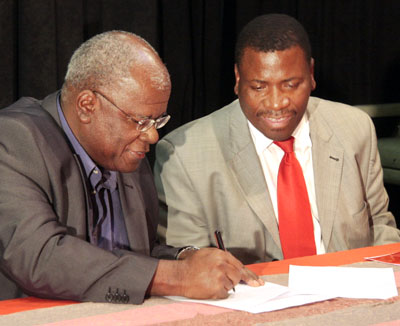Latest News Archive
Please select Category, Year, and then Month to display items
12 October 2020
|
Story Arina Engelbrecht
|
Photo Supplied
 Arina Engelbrecht from Organisational Development and Employee Well-being believes physical activity has a number of benefits for one’s health, including stress relief.
Arina Engelbrecht from Organisational Development and Employee Well-being believes physical activity has a number of benefits for one’s health, including stress relief.
Being physically active plays a big role in preventing the development of mental-health problems and in improving the quality of life of people experiencing mental-health problems.
Treatment for depression
Physical activity can be an alternative treatment for depression. It can be used as a stand-alone treatment or in combination with medication and/or psychological therapy. It promotes all kinds of changes in the brain, including neural growth, reduced inflammation, and new activity patterns are formed that promote feelings of calm and well-being. It releases endorphins – powerful chemicals in the brain that energise your spirit and make you feel good.
Physical activity can be very effective in relieving stress. Research in adults has found that physically active individuals tend to have lower stress levels compared to individuals who are less active. It also leads to improved sleep. When a person sleeps better and feels more rested, overall quality of life improves. They cope better with daily life stressors.
Reduce Alzheimer's risk
Regular physical activity can reduce your risk of developing Alzheimer's disease by up to 50%. It can also slow down further deterioration in those who have already started to develop cognitive problems. It stimulates the brain’s ability to maintain old connections as well as to make new ones.
A study asked people to rate their mood immediately after periods of physical activity (e.g. going for a walk/run, cycling, doing housework) and periods of inactivity (e.g. reading a book or watching television). Researchers found that participants felt more content, more awake, and calmer after being physically active compared to after periods of inactivity.
In conclusion, people who are physically active feel a sense of well-being, feel more energetic throughout the day, sleep better at night, have sharper memories, and feel more relaxed and positive about themselves and their lives.
“Being physically active not only changes your body, it changes your mind,
attitude, and your mood.” – Arina Engelbrecht
UFS teams up with Kagiso Trust
2010-08-11
 |
|
Prof. Jonathan Jansen (Rector and Vice-chancellor of the UFS) and Mr Khotso Schoeman (Chief Executive Officer of the Kagiso Trust).
Photo: Gerhard Louw
|
The University of the Free State (UFS) has signed an agreement with Kagiso Trust to host a series of memorial lectures and discussions commemorating the life of clerical activist Beyers Naudé. Naudé strove against his pro-Nationalist Party upbringing to help the anti-apartheid struggle. He was pivotal in starting dialogue, in South Africa and abroad, concerning apartheid. It is because of his willingness to discuss issues in open dialogue that Kagiso Trust decided to honour him.
These lectures aim to involve students and staff from all the UFS campuses, as well as the Free State community in general, to talk critically about societal issues and challenges, while celebrating the life of Beyers Naudé.
The lectures will continue at the UFS for three years and a different theme related to the main idea will be chosen each year. Each theme will have subthemes guiding discussions among students and staff on the three campuses of the UFS. The theme for this year’s lecture is “Crafting a legacy”.
The launch of the memorial lecture series at the UFS will be on the Main Campus on Monday, 13 September 2010. In 2011 the activities will move to the Qwaqwa Campus of the university.
Media Release
Issued by: Mangaliso Radebe
Assistant Director: Media Liaison
Tel: 051 401 2828
Cell: 078 460 3320
E-mail: radebemt@ufs.ac.za
11 August 2010